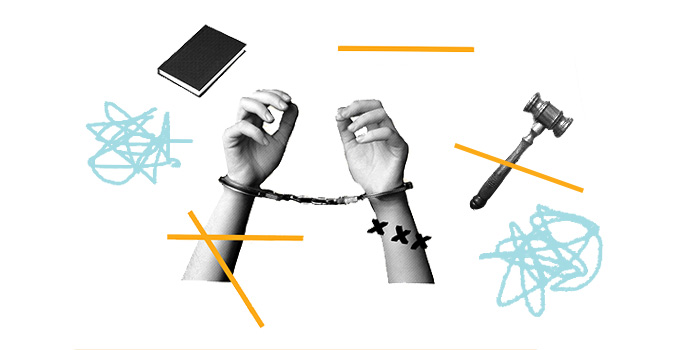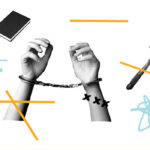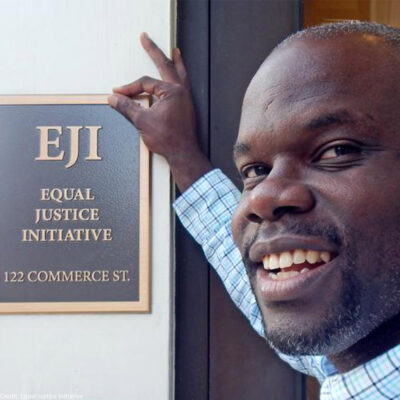Juvenile Justice
Youth are still developing, so as a result society treats kids and adults differently in several contexts, such as driving and serving in the military. Yet in the criminal justice system, we treat youth as adults.

What you need to know
The Latest
Explore More
What We're Focused On
-

School-to-Prison Pipeline
The ACLU works in courts, legislatures, and communities to defend and preserve the individual rights and liberties that the Constitution and the laws of the United States guarantee everyone in this country.
-

Youth Incarceration
The ACLU works in courts, legislatures, and communities to defend and preserve the individual rights and liberties that the Constitution and the laws of the United States guarantee everyone in this country.
What's at Stake
After decades of punitive “tough-on-crime” responses to youth crime and misbehavior, there has been a perceptible shift in recent years surrounding juvenile justice issues in the United States. Policymakers are slowly returning to the first principles of juvenile justice by recognizing that young people are still developing and should be given opportunities for treatment, rehabilitation, and positive reinforcement. Through advocacy, legislation, and reallocation of resources, a majority of states have successfully expanded community alternatives to jail and prison and significantly reduced the number of children behind bars.
The ACLU is committed to challenging the criminalization and incarceration of young people—particularly youth from disenfranchised communities. We are promoting positive approaches to school discipline and seeking to dismantle the “school-to-prison pipeline.” We are working to change laws and policies so that states and local jurisdictions use youth jails and prisons sparingly and instead provide effective community-based services and supports to system-involved young people and their families.
Ending excessive sentences and extreme punishments is of paramount importance to protect young people in the juvenile justice system. Together with national and state partners, we are committed to ending juvenile life without parole sentences so that no young person is sentenced to die in prison. We are also working to end the use of solitary confinement for all young people in juvenile facilities and in adult jails and prisons.
After decades of punitive “tough-on-crime” responses to youth crime and misbehavior, there has been a perceptible shift in recent years surrounding juvenile justice issues in the United States. Policymakers are slowly returning to the first principles of juvenile justice by recognizing that young people are still developing and should be given opportunities for treatment, rehabilitation, and positive reinforcement. Through advocacy, legislation, and reallocation of resources, a majority of states have successfully expanded community alternatives to jail and prison and significantly reduced the number of children behind bars.
The ACLU is committed to challenging the criminalization and incarceration of young people—particularly youth from disenfranchised communities. We are promoting positive approaches to school discipline and seeking to dismantle the “school-to-prison pipeline.” We are working to change laws and policies so that states and local jurisdictions use youth jails and prisons sparingly and instead provide effective community-based services and supports to system-involved young people and their families.
Ending excessive sentences and extreme punishments is of paramount importance to protect young people in the juvenile justice system. Together with national and state partners, we are committed to ending juvenile life without parole sentences so that no young person is sentenced to die in prison. We are also working to end the use of solitary confinement for all young people in juvenile facilities and in adult jails and prisons.




